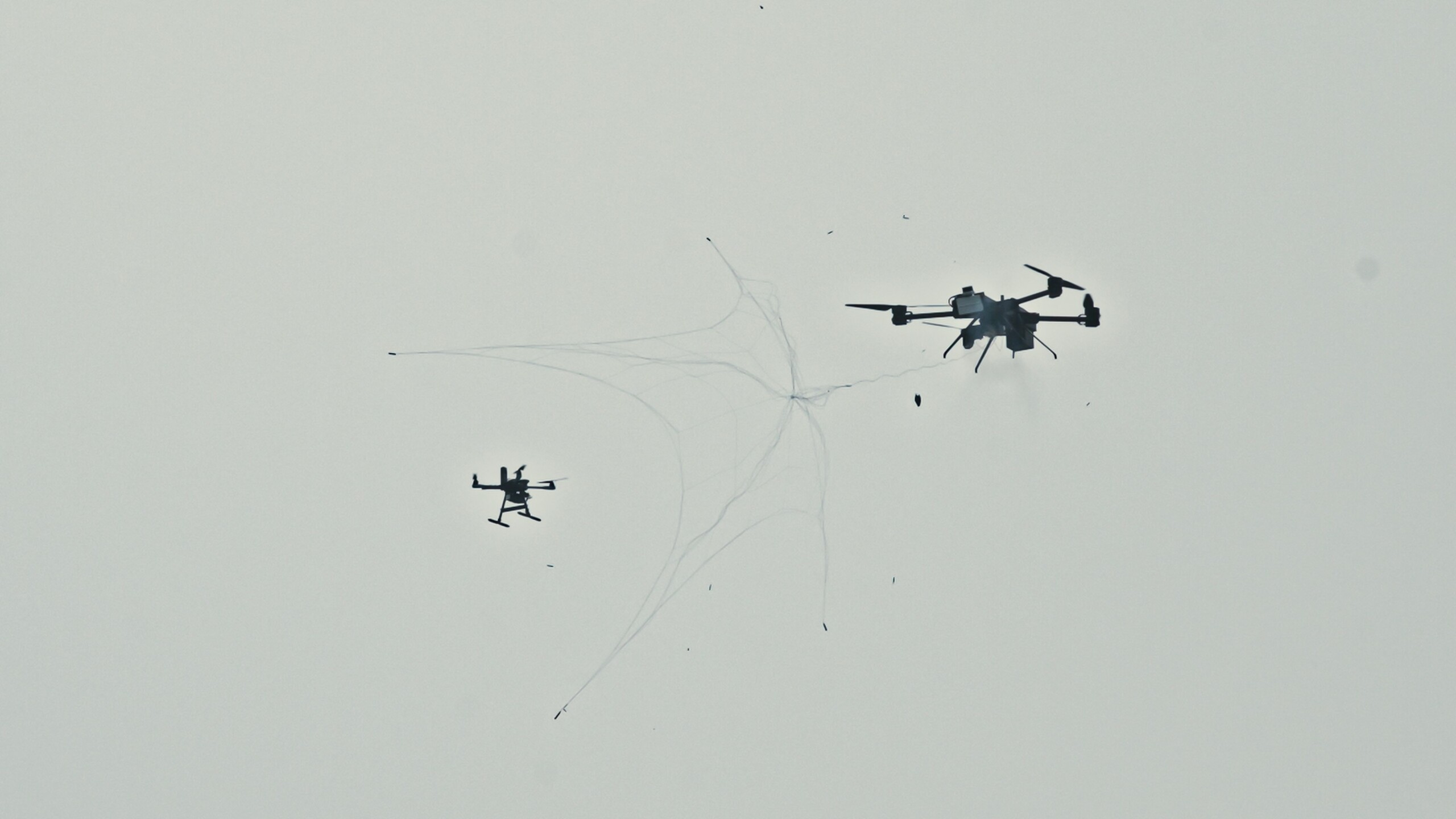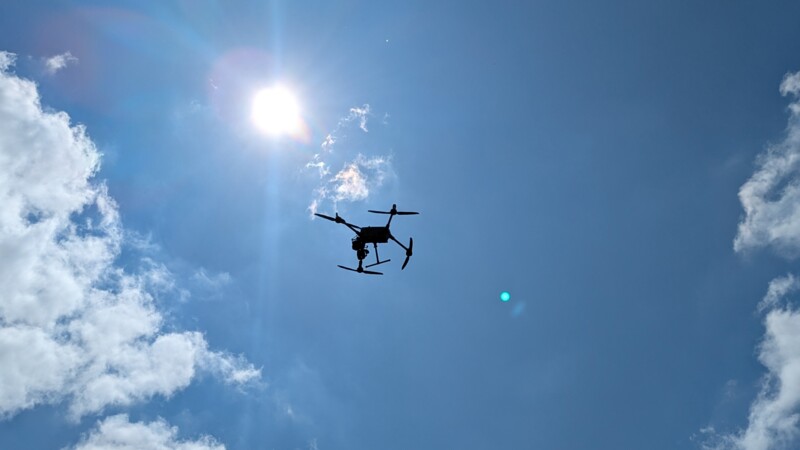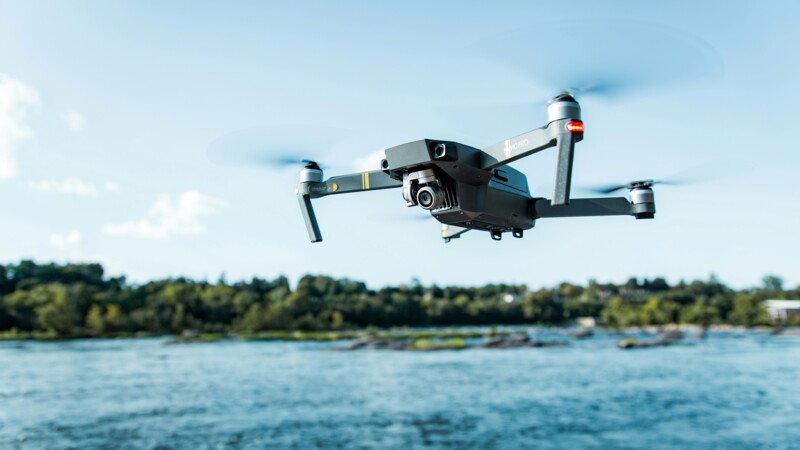Such an interceptor drone with an integrated network launcher was developed during the three-year Falke project led by Professor Dr Gerd Scholl at the Helmut Schmidt University (HSU). A consortium behind the project presented the results to the public in early 2023. During the project, a 1.40 metre high drone with six propellers that can reach speeds of 120 km/h was tested at Hamburg Airport and co-ordinated by federal police, air traffic control and the airport. The result was so convincing that Argus Interception GmbH, a startup based in Rotenburg (Wümme) in the Hamburg Metropolitan Region, took over the system and turned it into a product.
Shipyards and military facilities in north Germany, airports in Denmark and Norway and nuclear power plants in France are all facing hybrid threats from a rising number of illegal drones flying overhead. To counter this situation, the German government seeks to extend the power of the federal police to drone defence. That would allow them to shoot down dangerous drones. However, falling debris causes a huge problem as it could hit and injure people and damage infrastructure as well. A drone defence system, on the other hand, captures enemy drones with a net and forces them safely and intact to the ground. That is important, as the authorities have not yet been able to determine who is behind the drone overflights.
Joint falcon project

Interest from Germany and abroad
The falcon may have left the nest, but Argus Interception now has a cooperation agreement with HSU, said Scholl, who is a professor of Electrical Measurement Technology. "We are constantly sharing technical information to gradually develop the interception system and adapt it to a changing and threatening situation." The current version is being purchased by the German armed forces and police and has also sparked global interest, he noted. The EU is now planning a "European Drone Defence Initiative" under which various defence systems would detect, track and neutralise drones. The HSU/Argus development could yet become part of this initiative.
Absolutely ready for defence
Originally developed as a countermeasure for aircraft spotters and activists keen to bring airports to a standstill with their drones, the defence system may now have to deal with more professional intruders. But is the former falcon up to the task? "The interceptor drone can obstruct a large, fast-approaching drone and capture it with a net," said Scholl. "If the approaching drone is too heavy or the net momentum of the striking drone is too great, the net is unhooked before the shot is fired. The drone falls to the ground before it reaches its target and would be an alternative to the hotly-debated shoot-down option," he added. A braking parachute could also be used to ensure that this is done in a controlled manner.

Available over counter, but not freely applicable
Now that the falcon in no longer a mere project, "anyone can buy the system, but not everyone can use it," Scholl said. Only the German armed forces and police can use it and "within the scope of the legal framework i.e., in a dangerous situation and when proportionality is ensured," Scholl stressed. So far, large companies such as BASF, RWE and Deutsche Telekom have not been granted permission to protect their data centres from drones, even though these centres form part of Germany's critical infrastructure.
New co-operation project
Scholl and his team are currently working with Deutsche Telekom on the "Digital Sensor-2-Cloud Campus Platform" project to improve the detection, i.e., the targeted investigation with technical devices, as well as the classification and fending off drones. "We are working on detecting drones that are controlled by mobile phone networks. We also working onsite with T-Systems to locate drones and controllers with high-frequency sensors," he added. Suitable defence measures like blocking radio signals or capturing the drone with Falke technology can then be taken.
ys/mm/pb
Sources and further information
More
Similar articles

Global drone industry meets in Hamburg

Study on acceptance of drones

Drones hold huge potential for Hamburg
